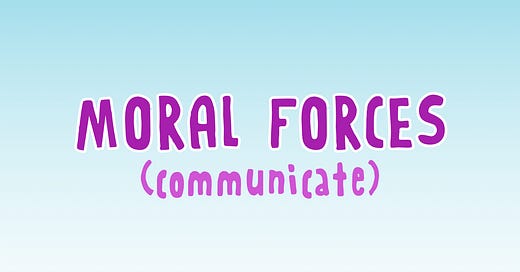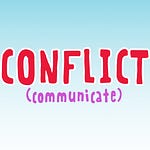Abbie: Hello and welcome to the CosmoParenting Podcast brought to you by the CMM Institute for Personal and Social Evolution. In this space, we invite you to see yourself as someone who is curious about and actively participating in creating your own meaning around parenting.
This is our ‘Communicate’ episode, in which the fourth episode of each month we will wrap up our theme by offering some ideas for communicating with your children, co-parents, or whoever else might be a part of your parenting to start having conversations about the things you are learning here. Let’s begin.
*music*
Abbie: Today, I am joined again by Nana Bonsu. Nana is a qualified social worker, family and systemic psychotherapist, and systemic supervisor. Nana is the Director of Relational Practice in Camden. And she's worked in Children's Services for over 20 years. She’s also parenting two teenage sons. Hello, Nana. Thank you so much for joining me again today.
Nana: Hi, Abbie. Thank you for having me. Looking forward to our conversation once again.
Abbie: Yeah, I'm really looking forward to hear what you have to say on this month’s theme of Moral Forces. This is a kind of different month just because it's maybe some new language for people, but this is meaningful language in my world of communication.
I love the activity that Stephanie offered us of the ‘Heart Map.’ And I just think the power of it is in the naming- being able to identify these different elements of ourselves and what motivates us. So keeping all that in mind, Nana, what would you add to the conversation around Moral Forces? And you could start with how you understand Moral Forces so we could get another, kind of, definition to help people out?
Nana: Yeah, thanks, Abbie. Great question. I think for me, Moral Forces is the invisible that organizes how you make decisions and how you behave.
And I use the word invisible because I think it's often not something that we are always conscious that we do. There are many ideas about how parenting should look, how you should be as a parent.
And all of these stories are also connected with your own family of origin stories about what parenting looks like. And one can act into a moral logic without necessarily realizing that you're doing it. So an example I can give of my own parenting is that when I was growing up and I came home from school- we used to wear a uniform- you take your uniform off. You kind of put on what we would describe as, kind of, casual house clothes. You hang up your uniform. You don't want to get it dirty. You need to wear it the next day.
My 15 year old son, he doesn't do that. He will just wear the uniform until he's ready to go to bed. And it's a real difficult one for me because I automatically get into a conversation with him where I say, ‘you need to take your uniform off.’ And this can go on for hours: Take your uniform off, take your uniform off. You still have your uniform, you're eating dinner, you're watching TV, you're doing your homework. Why are you wearing your uniform?
And it just seems such an antithesis to what I think should happen, how I think you should behave as a child when you come home from school.
So that example shows you how that's a family of origin script. And it's also, I think, a societal script about, you know, when children are supposed to listen to their parents or supposed to, you know, take the advice of a parent.
Those are the things that I think are interesting that if you're not aware of it, you can act in a way that are almost predetermined steps that you haven't even realized that you're walking down.
Abbie: Yeah. Yeah. Predetermined is a great word. The other word that I heard you say a lot is ‘should.’ And I think that's- that's it. That's anytime you're thinking about ‘shoulds,’ that's Moral Forces. You said it's invisible. It's something we feel like we have to do. And that's a great example because I think in parenting, in any relationships, these ‘shoulds’ can happen on many different levels.
Something kind of, you know: okay, so he doesn't take off his uniform. That's kind of a small thing, but it can also show up in like a lot larger ways in terms of how you feel like you have to parent.
And what kind of is coming to me as you're speaking, too, is that Moral Forces are helpful for ourselves to identify why we're acting how we're acting. And I think if you have the language of Moral Forces, it also helps you to be maybe a little more empathetic or understanding in your relationships because you can also apply Moral Forces to the other person.
Maybe you don't know exactly what all their stories or ‘shoulds’ are, but you can remember that they have their own Moral Forces that are maybe going to be different than yours. And so the relationship then, the communicating is about like coordinating like you're doing with your son.
Nana: Yeah. And I think that's so important, Abbie, when you're thinking about we all come into a relationship with each other, organized by these Moral Forces. And one can see a discord when you think that somebody should have behaved..
Abbie: Yes, yes.
Nana: … and, again, that word ‘should’ is key. Someone should have behaved in a way according to what you think is logical. And when that doesn't happen you either become curious. An important thing I think when you think about CMM the idea about trying to understand the logic of the other and think about what made them behave in that way rather than responding in a way that may shut down expansion because shutting it down might be something to the effect of- ‘What you're doing is wrong. What you're doing is not right. You should not do that.’
And it makes it difficult to then have a dialogue if you're in a position of thinking that somebody should and that word again should have behaved in a particular way.
Abbie: Yeah, I'm curious what your thoughts are on inviting children to consider their own Moral Forces, even as that's something maybe as adults we're naming and we're learning. How are we helping kids do the same for themselves?
Nana: I mean, I think in these conversations we've had in these podcast series before about how you're being invitational with children and how you're validating their voice and their lived experiences.
And I think a really good way of doing that is by inviting a dialogue, a conversation. Help me understand why you chose to behave like that or were there other options? What other options do you think you could have chosen? So I think conversations with children that you open up with circularity and questions that invite them to think about different possibilities.
Because I think often behavior is done in a way where we may not always be aware of what are the other possibilities that I could have chosen. And if you get children to begin to think about there are maybe two or three other options- would you maybe try out another option next time just to see how it feels?
Because it might be that the other option might feel better for you or might have a better outcome than the option that you think you ought to do.
Abbie: I love the language of invitations and it's making me think of a conversation I had with John Stewart, who's a communication scholar, on my Stories Lived. Stories Told. podcast. And he talks about invitations, but when he talks about invitations, he also talks about offerings.
And so that kind of, you know, reciprocal nature of that, that you can invite your children in. And also it's important to offer something. And maybe that- in this context- is like model it for yourself. You know, if you're saying to your child: ‘You know what, I'm so curious to know why you did what you did. I'd love to share with you why I made the choice that I did…’
You know? Kind of offer an example and then invite them to do the same is like a really kind of beautiful dance of like, modeling it and inviting them and offering something to show that you're also practicing.
Nana: Yeah, I like that notion of modelling and almost rehearsing because I think the last time we spoke, we talked about relationships enabling a rehearsal.
Abbie: Exactly, yeah.
Nana: That's such a beautiful way of describing what can happen in an interaction with a parent and child. Opening up dialogues to help each other recognize that I'm learning as well. And there are times where I make decisions where, looking back, I could have chosen a different position. I think that's really important, actually.
Abbie: Yeah, I think so too. And it's got me thinking about reflexivity is a word that I hear thrown around and, you know, my understanding of it or how I like to think about it is the looking back for the purpose of looking forward. And so reflexivity is, you know, is maybe a layer beyond just reflecting, but being reflexive in your practices is perfect for this Moral Forces theme of the point of looking back and naming the Moral Forces is so that like you're naming right now, you can try out, practice, rehearse, making different choices in the future. And so I just think that's, yeah, really beautiful, really beautifully said.
And Nana, thanks for being here. We'll see you again in a couple months. We'll hear from you again in future Communicate episodes. And to everyone listening, thank you for joining us too. Don't forget to check out www.cosmoactivities.com for our other resources in this series, all of which are available for free.
And be sure to comment on this podcast episode on the CosmoParenting Substack. This ‘Collective Learning’ piece is so important. So, we want to hear from you- how is your practice going? We're grateful to be on this journey with you, and we will look forward to joining you next week for the first episode of our Moral Forces theme.
*music*'











Share this post